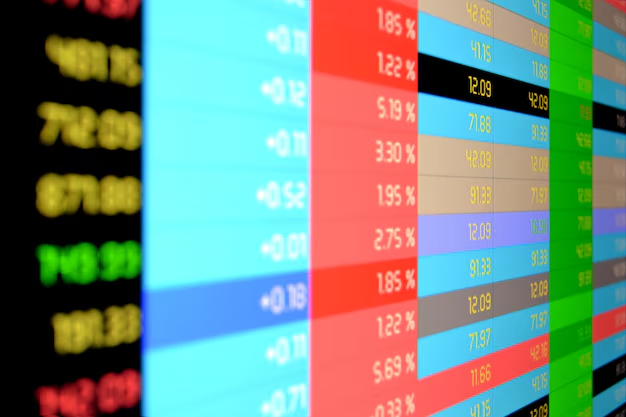When Does the Stock Market Open? Navigating Trading Hours with Confidence
The stock market can be an intriguing but intimidating world for first-time investors trying to navigate investment possibilities. Understanding stock market hours is crucial if you're considering investing or trading stocks. Knowing when markets open and close can influence your trading strategies and overall experience.
📈 Stock Market Overview: Understanding the Basics
Before diving into the intricacies of market hours, it's beneficial to understand the stock exchanges' purpose. Stock exchanges provide a secure and regulated environment for traders to buy and sell stocks. They help investors connect with companies seeking to raise capital and provide liquidity, allowing you to invest or divest as needed.
The main stock exchanges often discussed are:
- The New York Stock Exchange (NYSE)
- The Nasdaq Stock Market (Nasdaq)
Each exchange hosts a variety of firms where you can trade, but their operating hours are standardized in the U.S., making them easy to follow.
🕒 Regular Trading Hours: Timing Across Different Exchanges
When we talk about the stock market's operational hours, these often refer to the regular trading hours. For most U.S.-based stock exchanges, here’s the standard schedule:
The New York Stock Exchange (NYSE) and Nasdaq
- Opening Time: 9:30 AM EST
- Closing Time: 4:00 PM EST
Navigating different time zones can be confusing, especially if you're in a location where Eastern Standard Time (EST) isn't the norm. Here's a brief conversion:
- Eastern Time (EST): 9:30 AM - 4:00 PM
- Central Time (CST): 8:30 AM - 3:00 PM
- Mountain Time (MST): 7:30 AM - 2:00 PM
- Pacific Time (PST): 6:30 AM - 1:00 PM
📅 Stock Market Calendar: Influence of Holidays
The stock market observes several holidays throughout the year. On these days, exchanges are typically closed. Knowing these holidays can help you plan your investment strategy:
- New Year’s Day
- Martin Luther King Jr. Day
- Presidents Day
- Good Friday
- Memorial Day
- Independence Day
- Labor Day
- Thanksgiving Day
- Christmas Day
In some cases, if a holiday falls on a weekend, exchanges may close on the nearest weekday. Always check the exchange's official calendar for any variations or additional observances.
⏱️ After-Hours and Pre-Market Trading: Trade Beyond the Bell
The concept of extending trading possibilities has led to the development of after-hours trading and pre-market trading.
- Pre-market trading occurs before regular trading hours, usually from 4:00 AM to 9:30 AM EST.
- After-hours trading starts after the close of regular trading and runs from 4:00 PM to 8:00 PM EST.
These extended hours allow for trading beyond typical constraints, facilitating opportunities to react to news, earning reports, and global events that could impact stock prices. However, these sessions often have lower volumes and wider spreads, resulting in increased volatility and risk.
📊 Trading Strategies: How Timing Affects Decisions
Understanding the nuances of timing can influence your trading or investment strategies. Here are some considerations:
- Volatility at Market Open: Opening and closing times experience higher volatility as investors react to news released after the prior close or during pre-market hours.
- Midday Lulls: Markets often calm down during midday, with lower volumes and less dramatic price changes.
- Economic Indicators: Plan trades around release times for economic indicators, which often happen outside of regular trading hours.
🛠️ Tools for Monitoring Stock Market Hours
Luckily, technology provides many tools to help you stay on top of market hours and holidays:
- Trading Platforms: Most offer real-time updates and calendars. Ensure yours supports pre-market and after-hours trading if you plan to engage during these times.
- Finance Apps: Apps often provide notifications for key events—like the opening bell or economic releases—helping you stay informed.
- Online Calendars: Synching important dates such as trading holidays with your digital planner ensures you don't miss vital trading days.
💡 Key Takeaways
🗓️ Regular Trading Hours:
- 9:30 AM - 4:00 PM EST in the U.S.
🔔 Extended Trading Opportunities:
- Pre-market: 4:00 AM - 9:30 AM EST
- After-hours: 4:00 PM - 8:00 PM EST
📅 Plan Around Holidays:
- Markets close on specific holidays; check calendars for guidance.
⚙️ Use Technology:
- Enhance your awareness and efficiency with market alerts and trading tools.
📚 Related Subtopics: Deepen Your Understanding
- Understanding Market Indices: How indices like the S&P 500 or Dow Jones reflect market trends.
- Introduction to Investing for Beginners: Key concepts and strategies to get started.
- Market Volatility: How to navigate and understand market fluctuations.
Understanding when the stock market opens and closes, alongside the nuances of trading hours, boosts your readiness and strategy development. Equipped with this knowledge, you can make informed choices, optimize timing, and better manage risks in your trading endeavors. Whether you're a novice or an experienced trader, aligning your actions with market timing is a critical step on your investment journey.

Related Topics
- Did The Stock Market Crash
- Did The Stock Market Crash Today
- How Did The Stock Market Close Today
- How Did The Stock Market Do Today
- How Did The Stock Market End Today
- How Did The Stock Market Finish Today
- How Do You Make Money In The Stock Market
- How Does The Stock Market Work
- How Is Stock Market Doing Today
- How Is The Stock Market Doing
